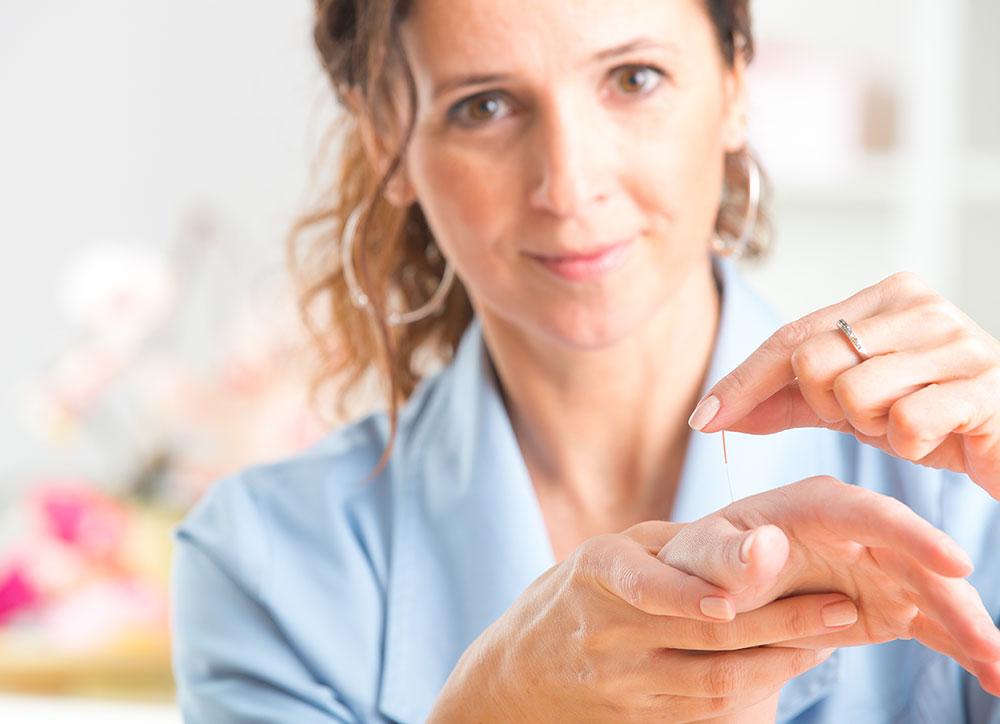
You will find information here about a form of traditional Chinese medicine that involves the insertion of thin needles into specific points on the body called acupuncture. Acupuncture is believed to stimulate the body’s natural healing processes and promote physical and emotional well-being.
There are several potential benefits of acupuncture, including:
- Pain relief: Acupuncture may help reduce chronic pain, such as low back pain, neck pain, and osteoarthritis.
- Stress reduction: Acupuncture may help reduce stress and anxiety by regulating the production of stress hormones and promoting relaxation.
- Improved sleep: Acupuncture may help improve sleep quality and reduce the symptoms of insomnia.
- Enhanced immune function: Acupuncture may help boost the immune system and improve overall health.
- Improved digestion: Acupuncture may help improve digestion and reduce the symptoms of digestive disorders such as irritable bowel syndrome (IBS).
Acupuncture relieves pain by stimulating the body’s natural pain-relieving mechanisms and promote healing. It is thought to work by activating the release of endorphins, which are natural pain-relieving chemicals produced by the body. Acupuncture may also help to reduce inflammation and increase blood flow to the affected area, which can help to reduce pain.
There is some evidence to suggest that acupuncture may be effective in reducing chronic pain, such as low back pain, neck pain, and osteoarthritis. However, the evidence for the effectiveness of acupuncture in treating acute pain, such as that associated with surgery or injury, is less clear.
When it comes to stress, acupuncture can stimulate the body’s natural healing processes and promote physical and emotional well-being. There is some evidence to suggest that acupuncture may be effective in reducing stress and anxiety. Acupuncture may help regulate the production of stress hormones, such as cortisol, and promote relaxation by activating the release of endorphins, which are natural chemicals produced by the body that have a calming effect.
There is some evidence to suggest that acupuncture may be effective in improving sleep quality and reducing the symptoms of insomnia, which can further reduce stress and improve overall well-being resulting in a stronger immune system.
Acupuncture and Chinese medicine, also known as traditional Chinese medicine (TCM), is a system of healthcare that has been used in China for thousands of years. It is based on the belief that health is determined by the balance of yin and yang, the two opposing and complementary forces that are thought to govern the functioning of the body.
Chinese medicine includes a range of treatments, including acupuncture, herbal medicine, dietary therapy, and tai chi. These treatments are used to restore balance to the body and promote health and well-being.
Herbal medicine is the use of plants and plant extracts to treat a wide range of conditions. Chinese herbal medicine is based on the principles of Chinese medicine and is used to restore balance to the body and promote health and well-being.
Dietary therapy is the use of food and nutrition to prevent and treat illness. In Chinese medicine, it is believed that different foods have different properties and can be used to balance the body and promote health.
Tai chi is a form of exercise that originated in China and is based on the principles of Chinese medicine. It is a gentle, low-impact form of exercise that involves slow, controlled movements and deep breathing to improve balance, flexibility and strength, and to promote overall health and well-being.
For more detailed information about acupuncture and Chinese medicine, please visit the blog section. It’s important to note that the benefits of acupuncture may vary from person to person and that more research is needed to fully understand how acupuncture works and how it may be used to treat various conditions. If you are considering acupuncture as a form of treatment, it is important to discuss it with your healthcare provider.